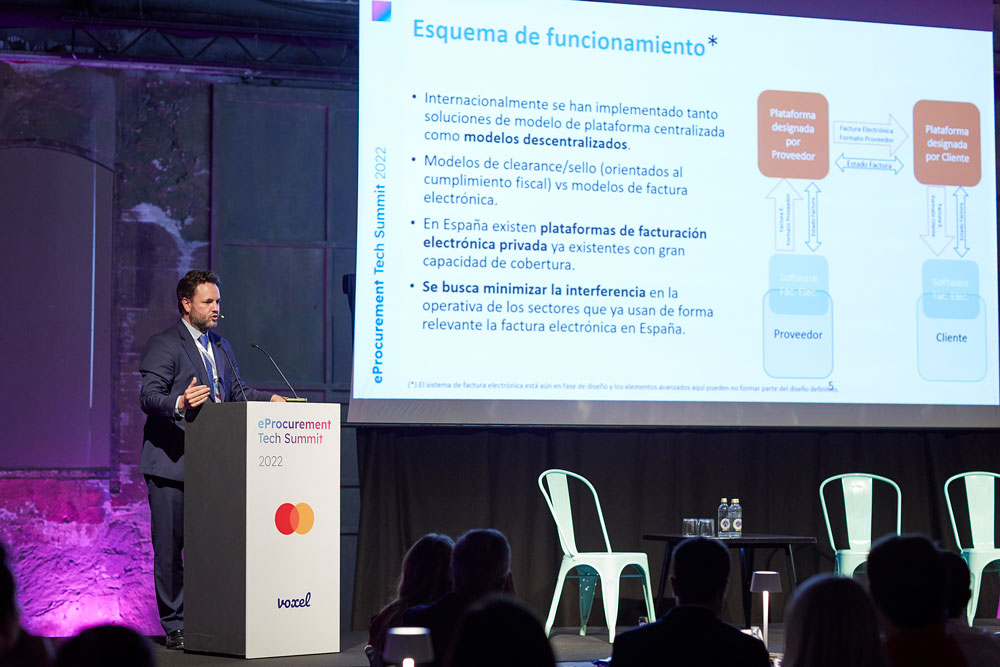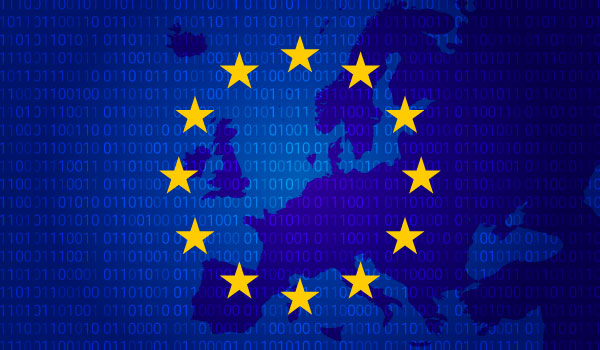Iker Beraza, of the Ministry of Economic Affairs and Digital Transformation, spoke about the mandatory electronic invoice in Spain at the eProcurement Tech Summit.
The mandatory B2B electronic invoice is already a reality in Spain. Last 22 September the “Crea y Crece” (Create and Grow) Law was passed, which sets forth the mandatory nature of the invoices. The schedule has already been implemented. And this means that by Spring of 2024, companies that bill over 8 million euros will have to operate with a digital invoice.
It was thus explained by Iker Beraza, Advisor of the General Directorate of Economic Policy at the Ministry of Economic Affairs and Digital Transformation, during the eProcurement Tech Summit held in Barcelona last 20 October. Beraza provided all the keys to the mandatory e-invoice in Spain. Continue reading to learn about these keys.
Payment date
The Government of Spain has conceived of this law with mainly two objectives. The first is to fight against abuses of payment deadlines. Thus, the law seeks to ensure compliance with legislation on the late payment of commercial debts using reliable data on deadlines for payment from customers to providers.
Companies must therefore show the payment date of each invoice. In this regard, the obligation to communicate the payment date could fall to the payer, the collector or both. This information will help to promote elements of public transparency. “A State Observatory of Late Payments will be created, with the capacity to establish a list of the worst payers. The idea is that it results in a reputational penalty for the purpose of re-orienting certain payment behaviors”, Beraza explained.
The second objective is committing to the digitization of companies within the framework of the Recovery Plan of the Spanish economy.
Decentralized electronic invoice system
There are mainly two models of e-invoices in the world: clearance and post-audit. Spain has opted for the latter. “Spain has decided on a decentralized model that is based on private technology platforms. It is essential that we succeed in getting them to reach the entire universe of companies. We expect the existence of a considerable group of large platforms in Spain to allow maximizing coverage for the entire private sector.”
In the post-audit model, companies exchange e-invoices without having to report them to the government in real time.
 Application schedule
Application schedule
The “Crea y Crece” Law was passed last 22 September. The law itself provides a period of 6 months for implementation. This means that it will be ready by March of 2023. As from then, one year is established for entry into force, during which time large companies must adopt the new regulation, and all other companies within two years.
The schedule is the following:
- March 2024: mandatory e-invoice for all companies that bill over 8 million euros annually.
- March 2025: obligation for companies that bill less than 8 million euros to use the e-invoice, as well as self-employed individuals.
Companies that already use the e-invoice
Within the context of the eProcurement Tech Summit, Beraza pointed out that “for companies that already use the e-invoice today, this shouldn’t represent a major change. (…) Any investment made regarding the e-invoice up to now is well made, and should not be reversed in any case.”
And the fact is that in 2021 in Spain a total of 296 million e-invoices were exchanged within the scope of B2B and 14 million invoices within the scope of B2G. Some of the sectors in which the e-invoice are used the most include travel, mass commodities, vehicles and healthcare supplies.
Iker Beraza also added that “it probably does represent a certain amount of change for e-invoicing platforms, which will have to adapt to the new requirements.”
E-invoices are already a reality in Spain, and all businesses that do not yet use them will have to adapt. If you’d like to get ahead of the mandatory deadline with the help of a leading partner, contact us at [email protected] and we’ll assist you.











